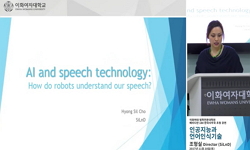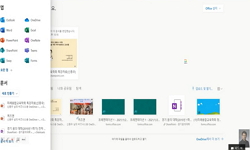이 연구는 지난 14년간(2010년∼2024년) 한국어 화자들의 차별표현에 대한 인식이 어떻게 변화하였는지를 살펴본 것이다. 2010년에 실시한 선행 조사를 바탕으로 동일한 방법론을 적용하여, 대...
http://chineseinput.net/에서 pinyin(병음)방식으로 중국어를 변환할 수 있습니다.
변환된 중국어를 복사하여 사용하시면 됩니다.
- 中文 을 입력하시려면 zhongwen을 입력하시고 space를누르시면됩니다.
- 北京 을 입력하시려면 beijing을 입력하시고 space를 누르시면 됩니다.

한국인의 차별표현에 대한 인지도 변화 양상 = A Study on Changes in Koreans’ Awareness of Discriminatory Expressions
한글로보기부가정보
국문 초록 (Abstract)
이 연구는 지난 14년간(2010년∼2024년) 한국어 화자들의 차별표현에 대한 인식이 어떻게 변화하였는지를 살펴본 것이다. 2010년에 실시한 선행 조사를 바탕으로 동일한 방법론을 적용하여, 대학생들이 일상적으로 사용되는 차별적 표현 10 개에 대해 어느 정도 차별성을 인지하고 있는지를 조사하였다. 해당 표현들은 성차별, 장애인 차별, 인종차별, 사회적 가치 차별의 네 범주로 나누어 분석하였다. 그 결과, ‘여승무원’, ‘장님’과 같은 성차별 및 장애인 차별표현에 대한 인식은 유의미하게 향상된 반면, ‘혼혈가수’, ‘결손가정’ 등 인종 및 사회 가치 관련 표현에 대한 인식은 미미하거나 오히려 낮아진 것으로 나타났다. 이는 공적 담론과 정책적노력이 일부 영역에서는 성과를 거두었으나, 사회적 관심이나 저항이 부족한 영역에서는 여전히 개선이 더딘 현실을 반영한다. 본 연구는 특히 사회적 가시성이 낮은 차별표현에 대해 균형 잡힌 개선 노력이 필요함을 시사한다.
다국어 초록 (Multilingual Abstract)
This study examines the changes in Korean speakers’ awareness of discriminatory expressions over the past decade (2014–2024). Building upon a previous survey conducted in 2010, the research replicates the same methodology to assess current percept...
This study examines the changes in Korean speakers’ awareness of discriminatory expressions over the past decade (2014–2024). Building upon a previous survey conducted in 2010, the research replicates the same methodology to assess current perceptions among university students regarding ten expressions commonly identified as discriminatory. The expressions are categorized into four areas: gender, disability, race, and social value discrimination. The findings reveal a significant increase in awareness of gender and disability-related discriminatory language, such as “female attendant” and “blind,” while expressions related to race and social values, such as “mixed-blood singer” and “broken family,” show either minimal change or decreased awareness. These results suggest that although public discourse and policy efforts have heightened sensitivity in certain areas, broader societal acceptance and resistance to change in others continue to limit progress. The study underscores the need for more balanced and inclusive education on discriminatory language, especially in areas lacking strong advocacy or social visibility.
동일학술지(권/호) 다른 논문
-
영상 기반 활용 교육에서 읽기와 쓰기 능력의 상호 강화 가능성 탐색 - <지혜학교>와 <동서울 대학교> 수업 사례 중심으로 -
- 백록어문교육학회
- 권미숙
- 2025
- KCI등재후보
-
박주택 시에 나타난 선택적 불행과 시적 불안 의식 연구 - 박주택 시집 카프카와 만나는 잠의 노래를 중심으로 -
- 백록어문교육학회
- 이수빈
- 2025
- KCI등재후보
-
튀르키예 대학 내 직업 목적을 위한 비교과 한국어교육 과정 마련 방안 - 이스탄불대학교 한국어문학과 졸업생과 이스탄불 인근에 소재한 한국 기업의 요구 조사를 중심으로 -
- 백록어문교육학회
- 손영은
- 2025
- KCI등재후보
-
우즈베크인 한국어 학습자의 구술발화에 나타난 한국어 격조사 사용 양상
- 백록어문교육학회
- 미로림
- 2025
- KCI등재후보




 KISS
KISS




